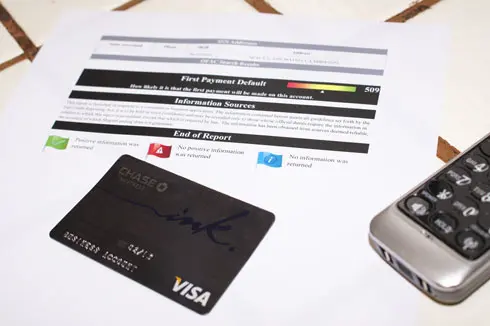Improve Your Credit Report
Key Takeaways:
- Monitor your credit
- Spend responsibly
- Pay off your cards
10 Tips To Improving Your Credit Reports
Your credit score may be something that you pay no attention to until you are applying for a loan or credit. Because even a poor credit score can be built into a strong credit score, within two years, it makes sense to review your credit score regularly and to take the proper steps to improve your score if necessary. That way, when it comes time to have your creditworthiness judged, you will pass inspection.
Here are 10 ways to improve your credit report:
- Check your credit report regularly. You can view your credit report for free at AnnualCreditReport.com.
- Dispute any inaccurate information appearing on your credit report. Go to the Bills.com debt self-help center for sample dispute letters. The credit bureaus must follow the rules set forth by Congress in the Fair Credit Reporting Act (FCRA). There is no need to hire a credit repair firm, to dispute errors; you can do it on your own.
- Pay your bills on time every month. Late payments will seriously harm your credit score. To improve your credit, you must open, use, and responsibly pay your credit accounts that regularly report to the three major consumer credit reporting companies (Equifax, Experian, and TransUnion). You should pay off open derogatory listings, and you should start making payments on other credit lines to reprove your credit score.
- Avoid running up debt. Pay your debts off as best you can. If possible, keep any running balance on your credit cards to less than 35% of the card's credit limit. Do not "max out" any loans or cards.
- Consider a secured credit card. If your credit history is sparse, creditors will be reluctant to offer you credit. A secured credit card is an excellent way to launch your credit history.
- Diversify your credit portfolio. For example, if you have only a Visa, MasterCard, or Discover card, get a department store credit card or card from a gasoline retailer.
- Keep your oldest credit account active. Part of your credit rating is based on the length of time that your accounts have been open.
- Monitor the number of new credit applications you complete. Applying for multiple lines of credit within a short period of time can lower your score.
- Use your accounts regularly. It helps your credit score when you actively use and pay off your credit accounts.
- Consider a credit freeze. If you have been a victim of identity theft, consider a credit freeze, which will help prevent criminals from opening accounts in your name. A credit freeze makes it impossible for creditors to do a "hard inquiry" on your credit file, which almost all credit card issuers, auto lenders, and mortgage lenders do when reviewing a credit application.
To learn more about credit reports, credit scoring, and what it means to you, explore the wealth of material offered by the Bills.com credit information page.
